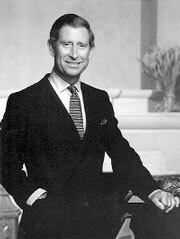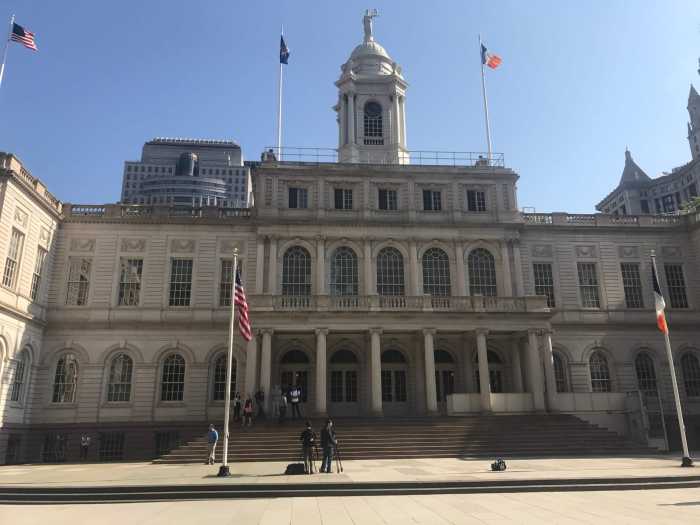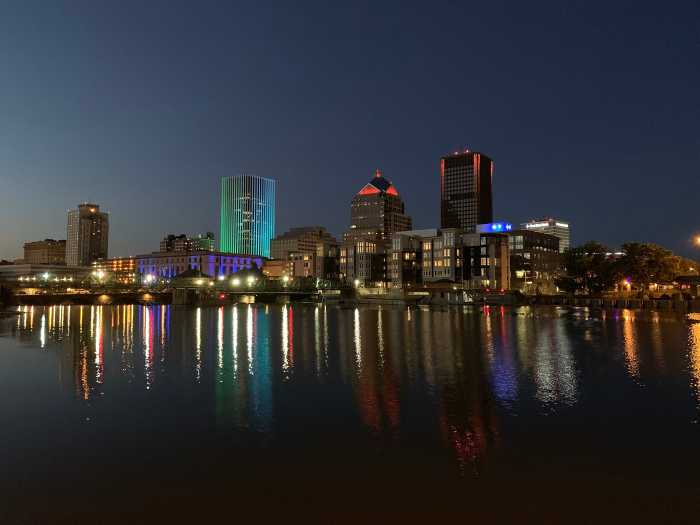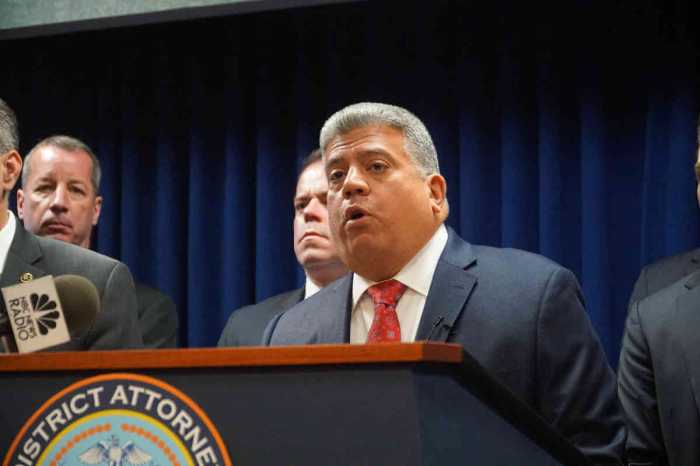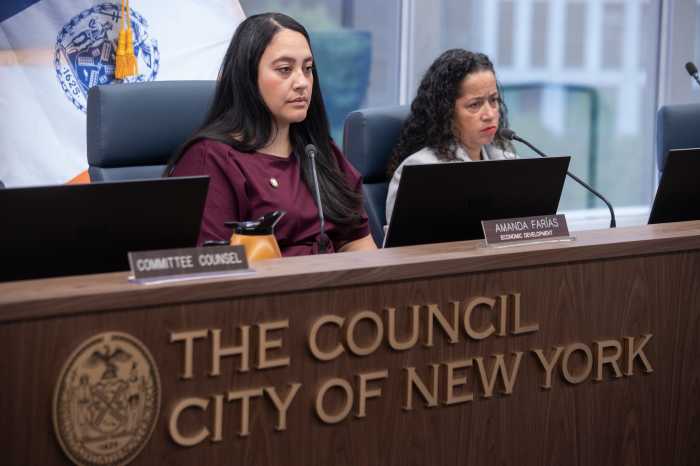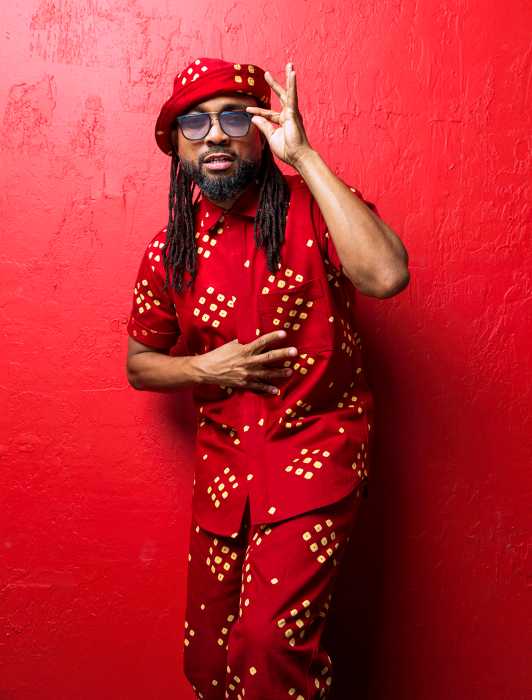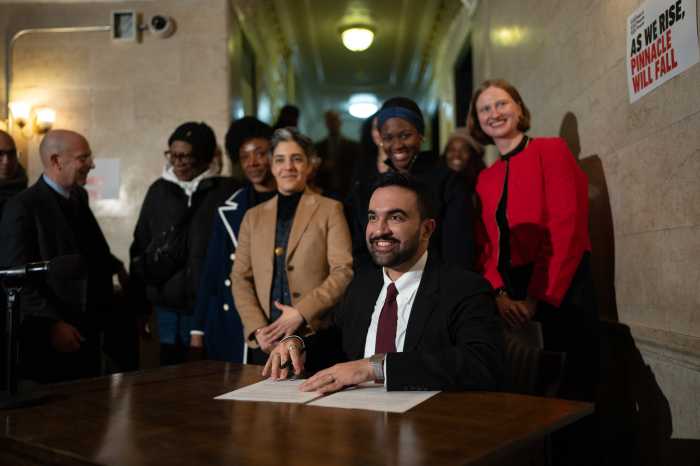Controversy swirls the week that the queen will call for same-sex couple rights
The office of Prime Minister Tony Blair will prepare the speech that the queen presents, so it is sure to be gleaned for indications of the governing Labour Party’s priorities in the upcoming legislative session.
Granting rights to gay couples is, by most measures, a step forward for Great Britain, even coming as it does after so many other Western Europe governments showed the way.
Pres. George W. Bush is expected to visit England this week, but it seems unlikely that the two war allies—the right-leaning American president and the left-leaning British prime minister—will take up the issue of same-sex couple recognition.
Against this backdrop of modest progress on gay rights, Britons are fixated on the ongoing headlines in tabloids that—restrained by the U.K.’s stringent libel laws—can only slyly allude to allegations that Prince Charles had sexual relations with a former aide, Michael Fawcett. In an ongoing legal struggle, Fawcett has managed to get a court to forbid the British press from actually specifying the accusation.
The media whirlwind, nevertheless, has renewed discussion of Charles’ worthiness to succeed to the throne, with his advocates claiming that his accuser, George Smith, has a checkered history of alcoholism and stress disorders. But Charles’ public denials of sexual accusations not formally named have only fueled interest in a story previously dismissed as mere rumormongering.
The prince’s spokesperson, Sir Michael Peat, branded the accusations as “risible” and “totally ludicrous,” only to have others rebut his denouncements. Public relations experts have chastised the palace for self-inflicting further wounds by speaking out publicly about the charges. A former press aide to the prince, Mark Bolland, an out gay man, has said that Peat once asked him if he thought Charles was “bisexual,” a charge Peat denied. That led one British tabloid to go out on a limb with a headline asking, “Is Charles Bisexual?” Rupert Murdoch, the Australian media magnate long a powerhouse in the London newspaper world, was able to take his gloves off completely in his New York Post, which featured the headline “Princess Charles.”
The furor seems to be in part perpetuated by the London media’s infatuation with Charles’ intent to set up palace quarters with his longtime female lover, Camilla Parker Bowles.
Charles has consistently denied being gay. His response to the clamor of reporters posing the question to him of his sexual orientation is reminiscent of denials made by other public figures when it suggested they are gay. Pope Paul VI expressed outrage in the late 1970s when a French journalist claimed that the pontiff was homosexual and, earlier this year, a Florida Republican, Rep. Mark Foley deemed “scurrilous” descriptions that he was gay that appeared in a newspaper that profiled him as he considered a bid for the Senate, which he has since abandoned.
The gay press took the lead in the late 1980s in discussing openly the sexual orientation of public figures, a phenomenon that critics quickly dubbed outing. After a running debate among journalists that has lasted more than a decade, many reporters now no longer feel beholden to shield highly personal information from the public about major world leaders.
Presidential candidates are now routinely asked if they ever smoked marijuana as the Democrats recently were on MTV’s “Rock the Vote” forum. All but one candidate, former Ambassador Carol Moseley Braun, answered the question.
However, candidates for elected office in the U.S. are rarely asked if they have had same-sex experiences. Former Rep. Jack Kemp, when running for president, abruptly ended a “Today Show” interview when asked outside his home about rumors that he was a bisexual. Such directness is still considered bad form in the media world, and leading LGBT rights groups have generally taken the position that any inquiry into the sexual lives of public figures is an invasion of privacy and lends credence to the stigmatization of homosexuality.

